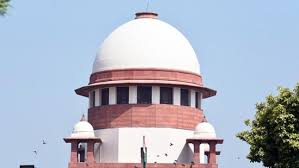Indian Penal Code, 1860 – Section 302 – Murder – Conviction set aside – Witness credibility, Extra judicial confession, Corroboration of evidence, Benefit of doubt – The Supreme Court considered the appeal challenging the conviction of the appellant under Section 302 of the Indian Penal Code, 1860, based on the prosecution’s case that the appellant fatally stabbed the deceased due to suspicion of illicit relations with his wife. The Court scrutinized the evidence presented, primarily relying on the testimonies of two key witnesses, Krishan Kumar (PW-5) and Ram Kumar (PW-8), along with circumstantial evidence. However, the Court found substantial contradictions and unreliability in the testimonies of these witnesses, casting doubt on the prosecution’s case. Notably, Krishan Kumar’s (PW-5) presence at the crime scene, his version of events, and lack of corroboration raised skepticism. Similarly, the alleged extra judicial confession, pivotal to the case, lacked corroboration and faced contradiction by another witness. In light of these inconsistencies and the absence of concrete evidence, the Court held that the prosecution failed to establish the guilt of the appellant beyond a reasonable doubt. Consequently, the Court acquitted the appellant, granting the benefit of doubt and quashing the impugned judgments. (Para 39)
SUPREME COURT OF INDIA
2024 STPL(Web) 261 SC = 2024 INSC 307
Dharambir @ Dharma Vs. State Of Haryana
Criminal Appeal No.1858 OF 2009-Decided on 16-04-2024
https://stpllaw.in/wp-content/uploads/2024/04/2024-STPLWeb-261-SC.pdf







